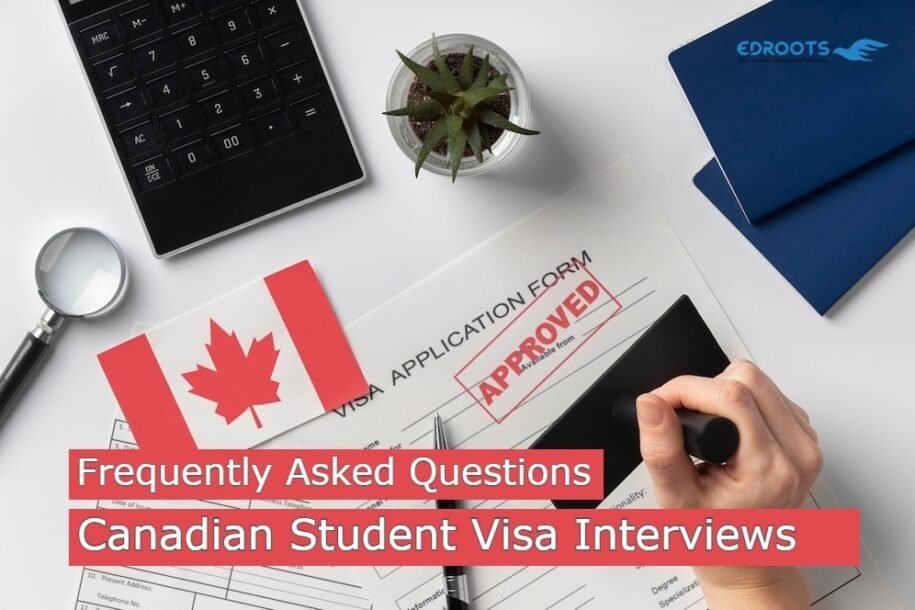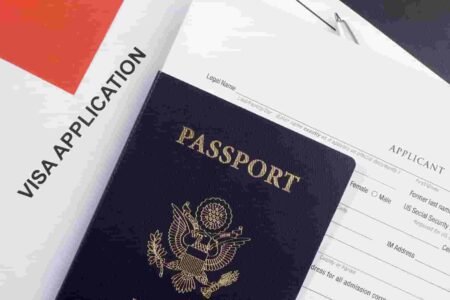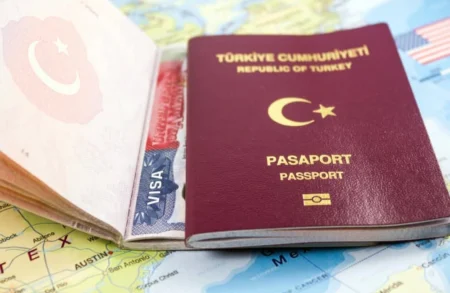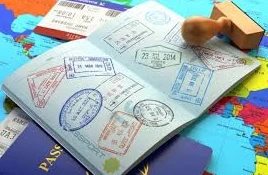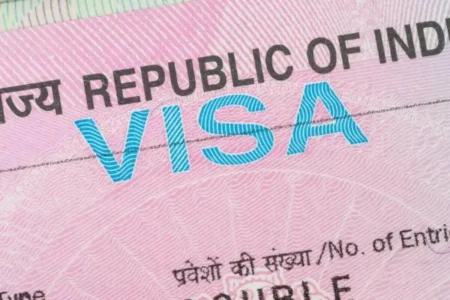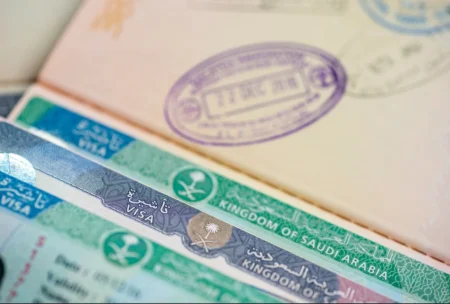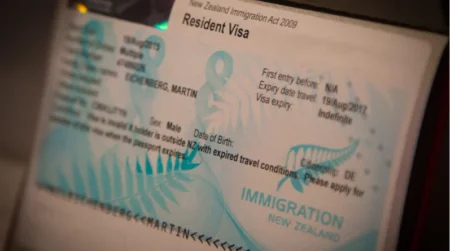Are you considering a trip to Canada? Do you have questions about your eligibility for a Canadian visa? Look no further! This article will provide you with all the information you need to understand the different types of Canadian visas and determine if you meet the requirements.
We will also discuss the required documents for the visa application process and factors that may affect your eligibility.
Additionally, we will address some frequently asked questions about Canadian visa eligibility. Whether you are traveling for tourism, work, or study, this article will give you the guidance you need to navigate the Canadian visa application process successfully.
So, let’s dive in and find out if you are eligible for a Canadian visa!
Key Takeaways
- Familiarize yourself with the Canadian visa application process and follow the instructions provided.
- Thoroughly prepare all required documents and ensure they are complete and accurate.
- Avoid common mistakes such as providing false information or neglecting to disclose previous visa rejections.
- Seek professional advice or hire an immigration consultant to improve your chances of success.
Understanding the Different Types of Canadian Visas
If you’re planning to visit Canada, you’ll need to understand the various types of Canadian visas available. The Canadian visa categories are designed to cater to different purposes of travel, such as tourism, work, study, or permanent residency. Each category has specific requirements and application processes that you must follow.
For temporary visits, the most common type of Canadian visa is the visitor visa. This allows you to stay in Canada for a limited period, usually up to six months. To apply for a visitor visa, you need to fill out an application form, provide supporting documents, and pay the required fees. The application process also includes an interview at the Canadian embassy or consulate in your country.
If you’re planning to study in Canada, you’ll need to apply for a study permit. This permit allows you to stay in Canada for the duration of your study program. To apply, you’ll need to provide acceptance from a Canadian educational institution, proof of financial support, and a valid passport. You may also need to undergo a medical examination.
For those who wish to work in Canada, you’ll need to obtain a work permit. The application process may vary depending on the type of work you’ll be doing and the duration of your stay. You’ll need a job offer from a Canadian employer and prove that you meet the requirements for the specific work permit category.
Understanding the different types of Canadian visas is crucial to determine your eligibility for a Canadian visa. Once you know the category that suits your purpose of travel, you can proceed with the application process and fulfill the necessary requirements.
Determine Your Eligibility for a Canadian Visa
Assess whether you meet the requirements for a Canadian visa by considering your qualifications and background. To determine your eligibility for a Canadian visa, it is important to understand the Canadian visa requirements and the Canadian visa application process. Here are some key points to keep in mind:
-
Education and Work Experience: Canadian visas often require a certain level of education and work experience. Assess whether you meet the minimum qualifications based on your educational background and professional experience.
-
Language Proficiency: Proficiency in English or French is essential for most Canadian visas. Take language tests such as IELTS or CELPIP to demonstrate your language skills.
-
Health and Character: You must provide evidence of good health and character to be eligible for a Canadian visa. This may involve undergoing a medical examination and obtaining police certificates.
-
Financial Ability: Canadian immigration authorities require proof of sufficient funds to support yourself and any accompanying family members during your stay in Canada. Make sure you have the necessary financial resources to meet this requirement.
Assessing your qualifications and background against these requirements will give you a better understanding of your eligibility for a Canadian visa. Once you have determined your eligibility, you can move forward with the next step of the process, which involves gathering the required documents for Canadian visa applications.
Required Documents for Canadian Visa Applications
Ensure that you have all the necessary documents ready for your Canadian visa application to avoid delays or complications in the process. One of the common mistakes in Canadian visa applications is not providing all the required documents. Make sure to carefully review the document checklist provided by the Canadian government and gather all the necessary paperwork.
This may include your passport, photographs, completed application forms, and any additional supporting documents such as proof of employment, education, or travel history.
Another important document that you need to include in your Canadian visa application is proof of funds. This is crucial because it demonstrates that you have enough financial resources to support yourself during your stay in Canada. The Canadian government wants to ensure that you will not become a burden on their social welfare system. Therefore, you need to provide bank statements, income tax returns, or any other evidence that proves your ability to cover your expenses while in Canada.
Failing to submit all the required documents or not providing sufficient proof of funds can lead to delays or even rejection of your Canadian visa application. Therefore, it is essential to be thorough and organized when gathering your documents. Double-check everything to ensure that you have included all the necessary paperwork and that it is accurate and up-to-date.
Now that you understand the importance of having all the required documents and providing proof of funds, let’s move on to the next section. Here, we will discuss factors that may affect your eligibility for a Canadian visa and how to navigate through them successfully.
Factors That May Affect Your Eligibility
Navigating through various factors that can impact your chances, such as your travel history and criminal record, is crucial in determining your eligibility for a Canadian visa. There are several factors to consider when applying for a Canadian visa, and it is important to be aware of these in order to increase your chances of approval.
One of the factors that may affect your eligibility is your travel history. Canadian immigration officers will assess your past travel to determine if you have complied with the immigration laws of other countries. If you have a history of overstaying or violating visa conditions, it may raise concerns about your intentions in Canada.
Another factor to consider is your criminal record. Canadian immigration authorities take criminality seriously and may deny your visa application if you have been convicted of certain crimes. It is important to disclose any criminal convictions and provide necessary documentation to show that you have been rehabilitated.
Common misconceptions about eligibility for a Canadian visa include the belief that having a relative in Canada guarantees approval. While having a relative in Canada can be a positive factor, it does not guarantee approval on its own. Other factors, such as your education, work experience, and language proficiency, are also taken into consideration.
In conclusion, understanding the factors that may affect your eligibility for a Canadian visa is essential when applying. Your travel history, criminal record, and other factors will be assessed to determine if you meet the requirements. It is important to address any concerns and provide accurate and complete information in your application.
Now, let’s move on to frequently asked questions about Canadian visa eligibility.
Frequently Asked Questions about Canadian Visa Eligibility
Curious about whether you meet the requirements for a Canadian visa? Let’s dive into some commonly asked questions to help clarify any confusion.
-
Can I be rejected for a Canadian visa?
Yes, there are several common reasons for visa rejections. Some of these include incomplete or inaccurate forms, insufficient proof of funds, criminal record, or a previous immigration violation. It is important to carefully review the application requirements and ensure all necessary documents are included to avoid any potential rejections. -
Can I appeal a visa rejection?
Yes, if your visa application is rejected, you have the option to appeal the decision. The first step is to carefully review the rejection letter and understand the reasons for the refusal. You may need to provide additional documents or evidence to address the concerns raised by the immigration officer. It is advisable to seek professional assistance from an immigration lawyer or consultant to guide you through the appeal process and increase your chances of success. -
How long does the appeal process take?
The timeline for the appeal process can vary depending on various factors, such as the complexity of the case and the workload of the immigration authorities. Generally, it can take several months to a year to receive a decision on your appeal. It is important to be patient and provide any requested information promptly to avoid unnecessary delays.
Moving forward, let’s explore some tips for a successful Canadian visa application.
Tips for a Successful Canadian Visa Application
To increase your chances of a successful Canadian visa application, it’s essential to familiarize yourself with the following helpful tips. Avoiding common mistakes and understanding the application process can make a significant difference in the outcome of your application.
To assist you further, here are some key tips to keep in mind:
| Tips for a Successful Canadian Visa Application |
|---|
| 1. Prepare all required documents: Ensure you have all the necessary documents, such as a valid passport, proof of funds, and invitation letters, before starting the application process. Missing or incomplete documents can lead to delays or even rejections. |
| 2. Double-check your application: Carefully review your application for any errors or inconsistencies. Even a small mistake can negatively impact your chances. It’s advisable to have someone else proofread it as well. |
| 3. Follow the instructions: Pay close attention to the instructions provided on the application form and the official website. Each visa category may have specific requirements, and failing to meet them can result in a rejection. |
Common mistakes that applicants often make include providing false information, neglecting to disclose previous visa rejections, or underestimating the importance of thorough preparation, especially when it comes to CANADA VISA ELIGIBILITY and addressing CANADA VISA FAQ. It’s crucial to be honest and transparent throughout the application process.
The Canadian visa application process can be complex and time-consuming, so it’s essential to start early and allow ample time for processing. Additionally, consider seeking professional advice or hiring an immigration consultant to ensure you navigate the process correctly.
By following these tips and avoiding common mistakes, you can significantly increase your chances of a successful Canadian visa application. Remember, thorough preparation and attention to detail are key factors in achieving a positive outcome.
Frequently Asked Questions
How long does it take to process a Canadian visa application?
The processing time for a Canadian visa application varies depending on the type of visa you are applying for. It typically takes several weeks to several months. Make sure you have all the required documents ready.
Can I apply for a Canadian visa if I have a criminal record?
Yes, you can apply for a Canadian visa with a criminal record. However, having a criminal record may have an impact on your application process and could potentially result in a refusal.
Can I work in Canada while waiting for my visa application to be processed?
Yes, you can work remotely or explore alternative employment opportunities in Canada while waiting for your visa application to be processed. Take advantage of the flexibility and options available to you during this time.
Is there an age limit for applying for a Canadian visa?
There are no age restrictions for applying for a Canadian visa. However, you must meet the eligibility criteria, which may vary depending on the type of visa you are applying for.
Can I apply for a Canadian visa if I have a medical condition?
You can apply for a Canadian visa with a pre-existing medical condition. However, you may need to provide medical waivers and documentation to prove that your condition will not pose a threat to public health or safety.
Conclusion
In conclusion, now that you have a better understanding of the different types of Canadian visas and the eligibility requirements, you are one step closer to achieving your goal of visiting or immigrating to Canada.
Remember to gather all the necessary documents, consider any factors that may affect your eligibility, and follow the tips provided for a successful visa application.
With proper preparation and determination, you can increase your chances of obtaining a Canadian visa and embarking on your Canadian adventure.
Good luck!

